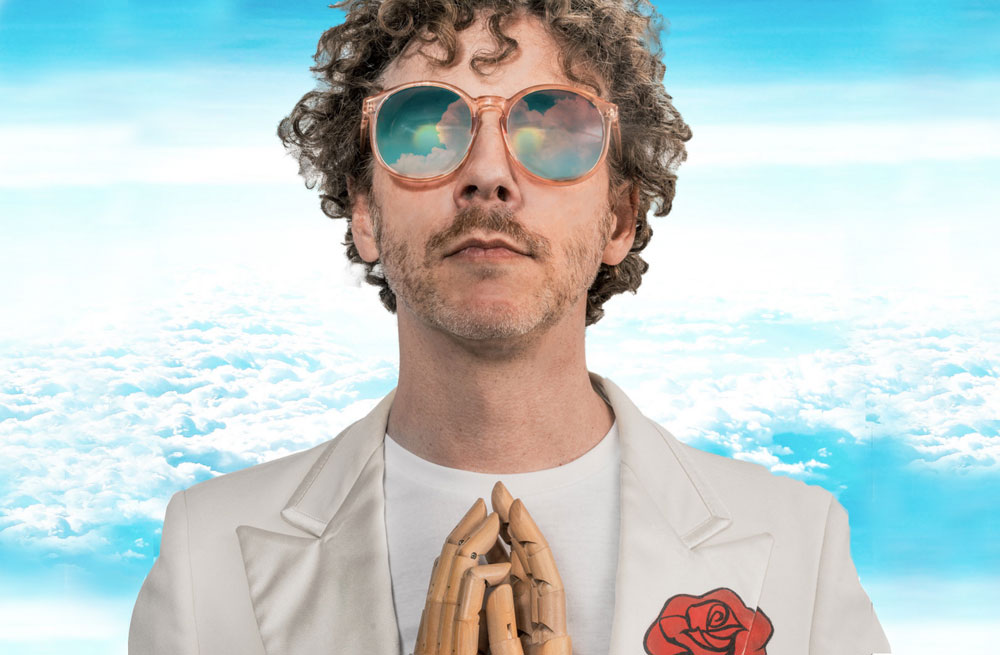
Talking about the writing process, pop music, and the future of the music industry with LA-based Nu Disco producer Blake Robin
It’s funny how this global pandemic has found ways to bring us all closer together despite all of the pain and suffering it has caused. Closer together virtually of course. Because while the Coronavirus would like nothing more then to separate and isolate us, humans all over the world have risen to the challenge with creativity and hope. People in Italy singing to each other from their balconies, doctors and nurses around the world coming out of retirement, classical musicians joining together one by one over video chat to form virtual orchestras… Even if you lock us in our houses and take away our jobs, humans will find a way to be hopeful.
And while the pandemic starts to wash over the planet with a second wave, it is in our nature to try and normalize the situation. Things aren’t quite the same, but we start to adjust to the new ways of shopping, meeting up with friends, consuming entertainment.
In some ways this new way of doing things has added to our lives in ways we wouldn’t expect. Things have slowed down a bit. I can hear the birdsong in London again for example. I’ve talked to friends and family over video chat more than ever. And working virtually has somehow opened up more meaningful conversations that reach around the globe.
So when I had the pleasure of virtually sitting down with nu disco producer Blake Robin in his sunny LA back garden, I had no idea how fruitful our conversation would turn out to be. What would have normally been a 5 or 6 question interview turned into a meandering conversation about Blake’s new Set Me Free EP, thoughts about the writing process, and the future of the music industry after lockdown.
Sure, we went a little bit off script. Sure we went on tangents. Blake’s lovely son came into the video chat at one point to give me a history lesson mid-interview, which was great. In every way, this was way better than any interview in a nightclub over some beers. And while this isn’t going to be our normal three-minute-read interview, I really do think that the world needs more of this kind of organic long-form conversation.
But listen, here are some Blake Robin facts:
For nearly the last two decades, Blake Robin has been helping to repopularize and reimagine the sounds of disco and funk.
Under his stage name, LUXXURY, Blake has cultivated a sound that combines that feel-good electronic sound of the 80s with the groovy soul of 70s-era disco. Characterized by rubbery bass lines and shimmering synths, LUXXURY creates music that is both nostalgic and fresh.
Blake is able to see virtually any genre of music through his shiny disco lenses. His remix treatment has been applied to pop songs from new artists like Little Boots and Melanie Martinez, but also classic tracks from the likes of Michael Jackson, The Talking Heads, Hall & Oates, The Doors, and The Clash.
I first came across Blake in 2013 when he released a series of unofficial remixes called the “LUXXURY Edits.” There was this amazing rework of “Hotel California” by the Eagles that managed to transform rock music into a slow-burn disco dancefloor anthem. And yet, it still stayed faithful to the original somehow. That “Hotel California” guitar solo reworked into an 80s disco drop… I was hooked ever since.
Most recently, Blake has launched a TikTok series called “Inside The Song” and last month he released a new EP entitled Set Me Free. It includes five new original tracks and 100% of sales will be donated to The NAACP Legal Defense and Educational Fund.
Skip down to the bottom to sample some of the singles from the new EP while you are reading.
Interview with LUXXURY
June 25th, 2020
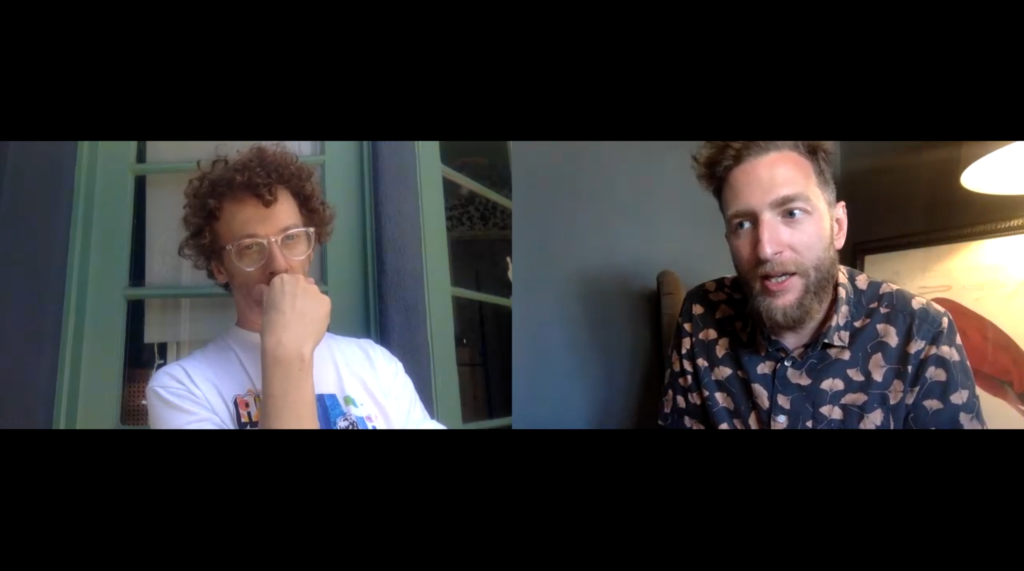
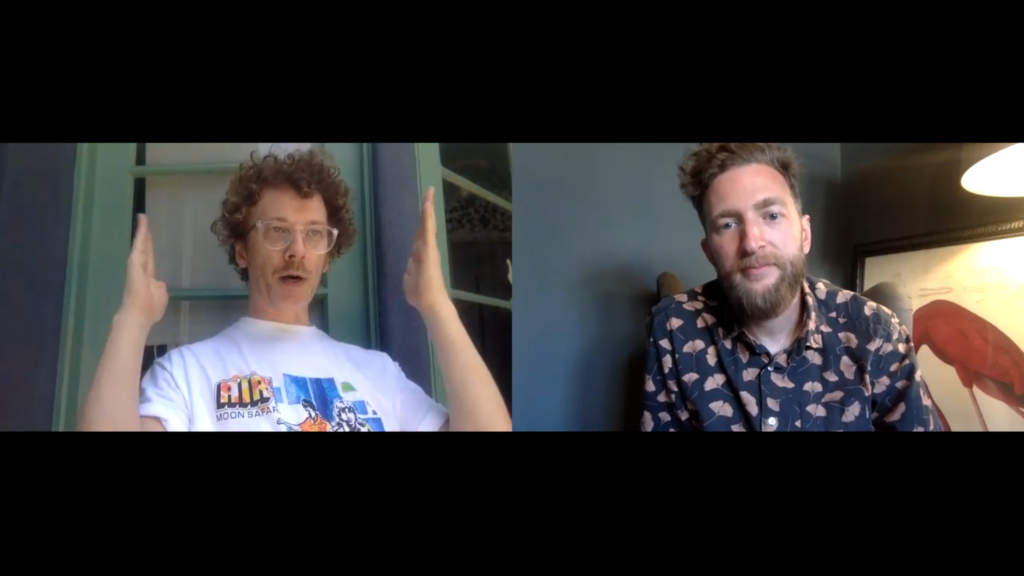
The New LoFi: There is a certain “feel good” quality to your music. Every song in your discography has a sunny upbeat nature to it.
You seemed to have ramped that up in recent years. Some of your latest singles — “Change Yr Mind” and “Set Me Free” — have become disco dance floor anthems. Was that the goal for your latest EP?
Blake Robin: It’s so funny hearing you say that because I have a massive blind spot. I really don’t know what I make. I don’t know who it’s for besides being for me.
I make it for me. And when other people like it, I’m so grateful. But I don’t really think very strategically about how [the music] is perceived in terms of “beatport” genre verticals.
I’ll make it, and it’s only after I’ve been through the whole process — coming up with the bassline, making the synths, coming up with the topline, mixing it, finishing it, uploading it, and it’s all done. That’s when I ask myself before I play a DJ set “what am I going to play?” I reach for one of my own tracks and I listen to it in the context of “am I going to play this tomorrow night in Tulum” and I’m like “nope.”
::laughs::
It’s only at that moment — after the whole process — that I’m like “oh wait, this is not something I would play.”
So I have a massive blind spot when it comes to the DJ-ability of my own tracks. I just make them because I like them. It’s really as simple and stupid as that. That’s the truth.
Obviously I’m making them to be ‘danceable.’ I’m considering BPM’s and there is a one minute intro of drums. There are all the kinds of things that go into it to make it a ‘DJable’ track. And I put out extended mixes and I make remixes, so I’m not completely unaware of what works on the dancefloor, but it’s just really hard for me to hear my own stuff (especially when I’m singing it) to hear what would work on the dancefloor.
TNLF: Well it must be. It’s gotta be difficult to judge your own music in that way. Especially because you are doing it all. The process you are going through to create the music is using one part of your brain while becoming a listener of your music is using a totally different side.
BR: Oh yeah. It’s absolutely a left-brain / right-brain thing. There are times when I have taken someone else’s track and I’ve loaded it into Ableton so I can see the waveform — because it’s a great tool for learning. When it’s purely left-brain. When you are just thinking of the math of the music — count the bars in the intro; then there’s a swoosh; and then on bar 9 the kick drum comes in; and then on bar 16 you get the bassline fading in — that’s a great learning tool and it’s really crucial to do that in any form.
But once you go through all of that left-brain process, you have to forget all that and go through the right-brain experience with your bass strapped to your body and your hands just doing something without letting the left-brain control it into being something specific that apes whatever the genre has already approved.
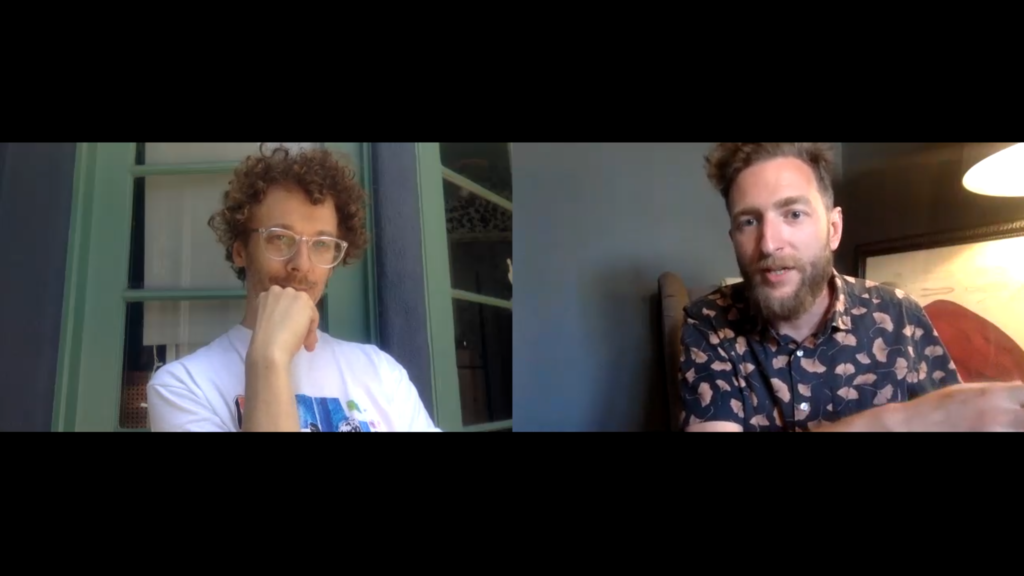
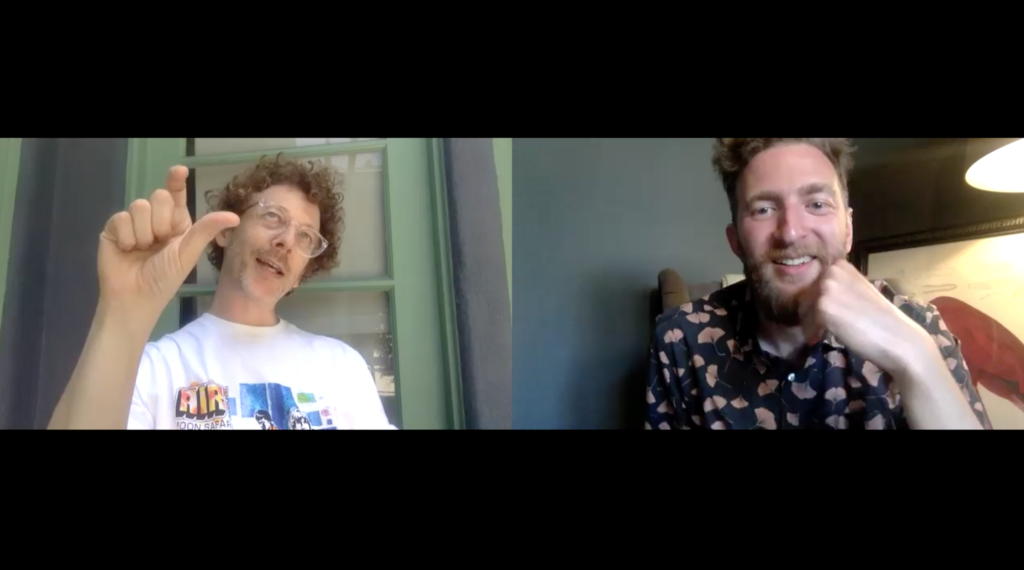
TNLF: We talked a little bit about how this lockdown has affected your life. What do you think about the music industry in general right now?
BR: I can’t imagine going to a nightclub for a long long time. I don’t even know when it would happen. Under what circumstances would I be DJing in a small dark room crammed with people again? I just can’t imagine when that would happen.
It’s sad, because that’s fun. And it’s my livelihood. And it’s what makes the music breathe. It’s one thing to make it, but it’s another thing to perform it or play it (whatever the word is) with other people around. You know, whether it is my own compositions, or productions I make as LUXXURY or singing as a live band or DJing those songs in a club or DJing other people’s songs… I don’t know when or how any of that happens again. It’s depressing.
TNLF: Do you think that means that DJing as a profession is unsustainable now? Are you going to quit? Or has this made you start to contemplate other ways of expressing your music?
BR: It has been such a sudden shift, that I don’t have an answer. It was half my revenue, so the other half that is production is still going strong. I’m still getting work making mixes and making my own music. That’s all still there. But the other part of it… I don’t know.
You know live streaming and all that… I did one under the radar the other day and it was fun, but it’s not the same. And it’s never going to replace [playing live] financially or the experience of playing live. So I just don’t know, and it has to be okay to not know.
TNLF: Yeah it does feel like it’s not going to be the same for a while. Well, until we have a vaccine perhaps. But that could take four or five years at least. How does the music industry survive for that long without live shows? Have you been making any shifts to adapt to this so-called “new normal.”
BR: The shift for me is adjusting or figuring out how to make things at home and having people see them virtually. Figuring out the virtual side of things. And yeah, to your point, it may be four or five years before things are normal again, or it may never really be normal again, but we also can’t know what might become the new thing.
TNLF: Maybe it’s like you say, it might never really go back to normal. But Maybe that’s a good thing. Perhaps that ‘new normal’ could be better than the ‘old normal’ in a lot of ways. This lockdown has really slowed people down to reflect. It has forced people to appreciate and meditate on what’s going on in their life right now. Little things like being physically close to the friends and family. Not taking the little luxuries for granted any longer. Appreciating our surroundings and thinking about what is really important to us. I think we are all way more aware of our surroundings right now too.
BR: It’s a really interesting point. It’s making me think: what would have happened if the George Floyd murder happened a year ago? Would the response have been the same?
It wouldn’t have been the same because something about our current environment — being locked in at home, having the awareness that you’re describing — something would have been different and it might not have been the tipping point that caused the global response. That is what is great about it too. It’s a global response. It’s not just local. It’s not just happening in American. It’s incredible to see the protests in Paris, and London and just all over.
I mean there is no doubt that it is fuelled in some way by the awareness, contemplation and desire for a reset that Covid has caused. It has led to raise our collective awareness. As humans we have to wake up each morning with a degree of hope and optimism — I mean that’s what gets us out of bed, right? We have to wake each morning with a bit of hope. So maybe you and I are putting a “glass is half full” spin on the situation but I have to agree that things could improve. Maybe things will eventually get better.
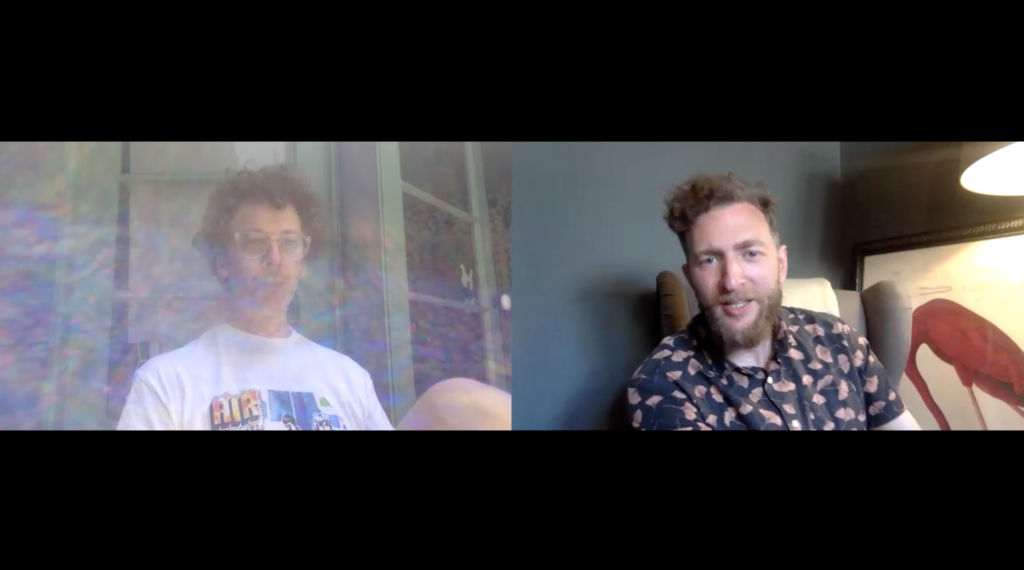
TNLF: The creative industry — artists, musicians and so on — are going to be hit the hardest by this pandemic. Do you think this is going to destroy the arts or do you think the industry is going to have an important role to play here?
BR: You’re asking such a great question. A big question.
…..The funny thing is, that no matter what tier of artist you are — whatever your audience size or the fee you charge as a DJ — everyone’s DJing fees are now equal.
::laughs::
Overnight we are all zeroed out.
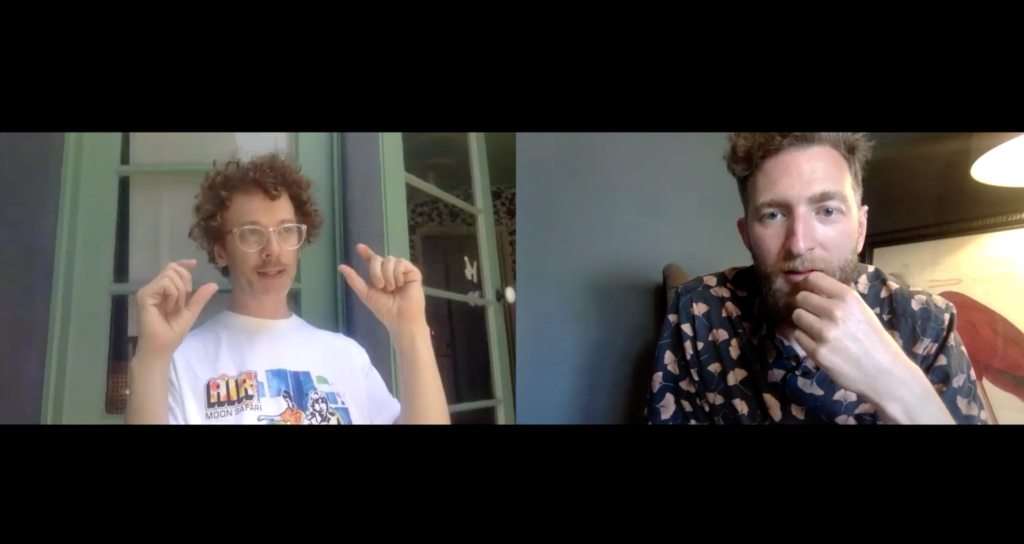
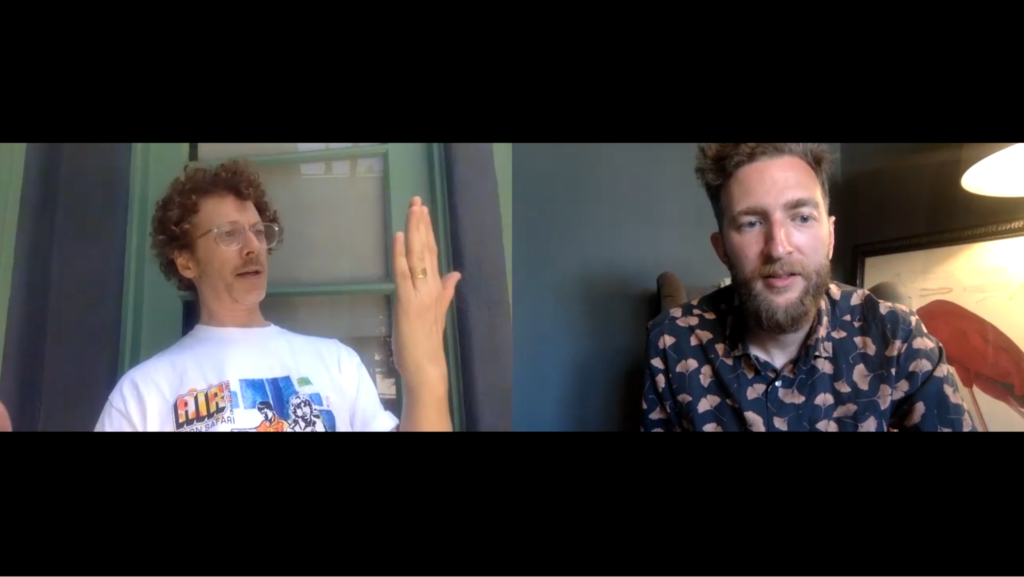
***
The conversation moved to talking about the state of pop music and the song writing process. Specifically the process behind writing songs for Blake’s new Set Me Free EP
***
BR: I am happiest with the songs that were the most meaningful when I was making them and when I was least concerned about how they would be received.
My favorite songs of the past couple of years were the ones on my new EP. I mean really, all of them.
::laughs::
That’s why they are out now, but “What Are We Gonna Do” and “At Any Moment” are the most personal and the quirkiest and they were just instant. When they came out of me, they were pretty fully formed. All I had done was finesse them to make the final product the best version of that song. But both ideas were there on minute one.
And they were both vocals that just came out of my mouth. I stopped writing lyrics years ago. I used to have a big list of lyrics and I would be trying to write a whole song. I would be making the song and finding the lyrics and be like ‘okay, I’m going to sing this thing I already wrote’ and that just didn’t work as well as making music, stepping up to the microphone with nothing in my brain and letting whatever comes out become the thing.
Those are the best songs for me, and the most meaningful songs because they are so real. Those songs are coming from somewhere so deep down. Like deep down in the iceberg of myself. They came from a place that I didn’t even know existed. I didn’t know what I was going to say. I didn’t know the melody I was going to make. It was purely right-brain.
TNLF: How many times has it been a “first take” when you do something like that?
BR: Actually, a lot. So many of those songs (mostly because I’m lazy about recording my own vocals — because there is nothing less fun than engineering yourself). Then editing that, it’s just so boring. And it’s difficult because it is yourself. I just hate that. So I almost always use first takes.
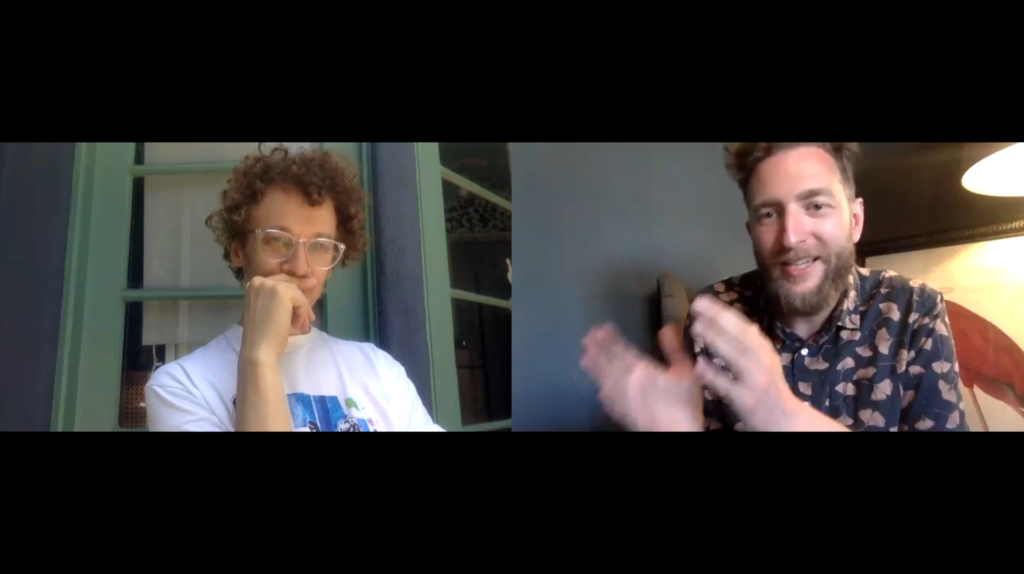
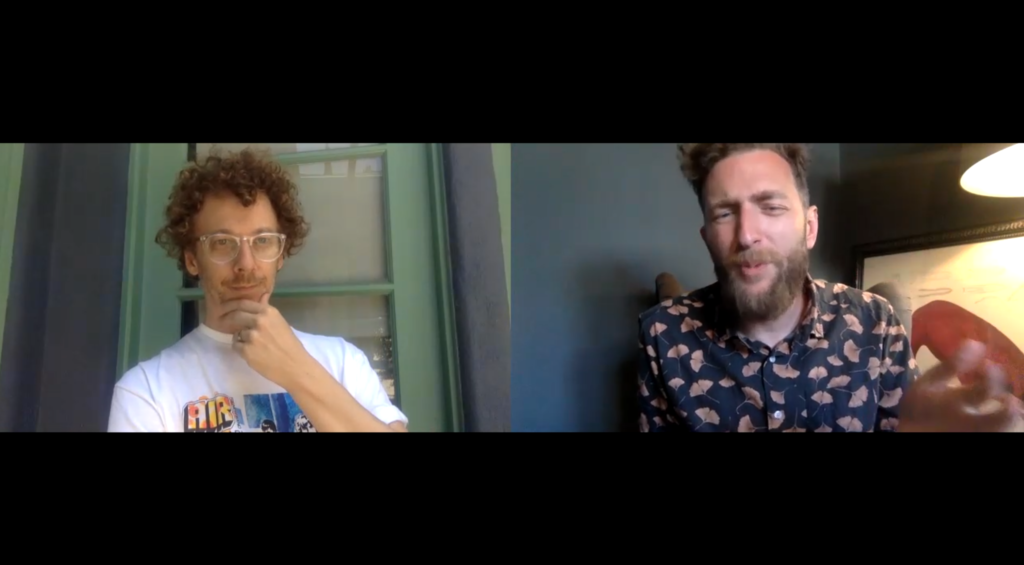
TNLF: “What Are We Gonna Do” is one of your favorite tracks from the new album. When I heard that for the first time I thought, “he must have written that during lockdown.” Am I right in thinking that you had written it before the pandemic?
BR: Yeah, actually, everything on that record was finished in January. I think in January I was mixing the final mixes that became all five songs. But yeah. certainly written and recorded way before the pandemic.
So “What Are We Gonna Do” is pretty simple but it wasn’t about lockdown. Neither was “At Any Moment.”
TNLF: Yeah, that’s another one. I mean the titles of the album would suggest you had a vision of the future. “What Are We Gonna Do,” “Set Me Free,” “Make It Right.”
And yeah, “At Any Moment.” The lyrics for that song are like: “things are good today, but at any moment things could change, at any moment they could get strange. I do what I need to survive, everything is going to be alright.”
If you didn’t write that during lockdown, you are like some kind of nu disco nostradamus.
::Laughs:: disco nostradamus.
But yeah, if I was to write that today it would be way too on-the-nose. I would feel corny writing any of the songs on the album right now. The fact that I wrote them a year ago is CRAZY but I’m really pleased about it because they have come out now and it feels really in-tune with what’s going on. But that’s just a crazy coincidence.
All of those tracks were recorded the way I described above. All of those songs came about through that process. So something inside me in late 2018 and 2019 (which is when all those songs were made) was just vibing on those melodies and lyrics.
And I don’t know. ::smiles:: Yeah, it’s crazy.
LUXXURY – Set Me Free (Song for a Person Walking Away)
LUXXURY – What Are We Gonna Do?
LUXXURY – …At Any Moment
Cover photo by Eli Green.
